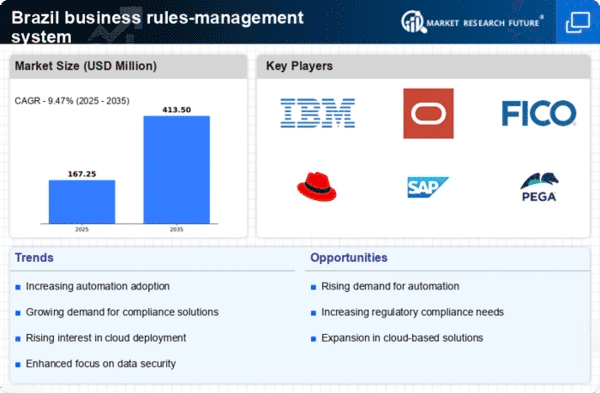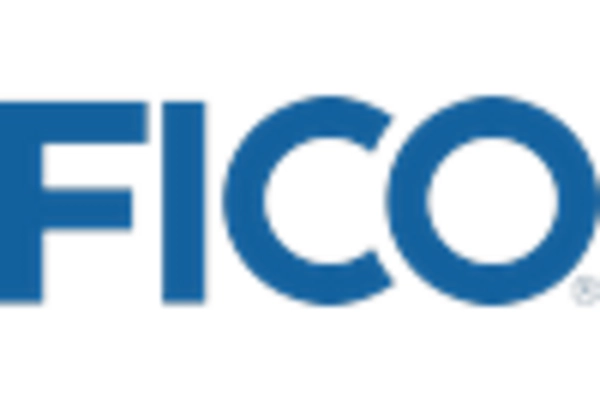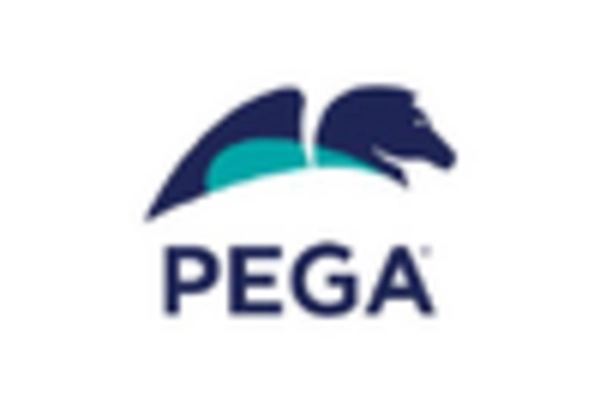Growing Demand for Automation
The business rules-management-system market in Brazil is experiencing a notable surge in demand for automation solutions. Organizations are increasingly recognizing the need to streamline operations and enhance efficiency. This trend is driven by the desire to reduce manual intervention in decision-making processes, which can lead to errors and inefficiencies. According to recent data, the automation sector in Brazil is projected to grow at a CAGR of 15% over the next five years. As businesses seek to implement automated workflows, the adoption of business rules-management systems becomes essential. These systems enable organizations to define, manage, and execute business rules effectively, thereby facilitating faster decision-making and improved operational agility. Consequently, the growing demand for automation is a significant driver for the business rules-management-system market in Brazil.
Regulatory Compliance Pressures
In Brazil, the business rules-management-system market is significantly influenced by the increasing pressures for regulatory compliance across various industries. Organizations are required to adhere to a multitude of regulations, which can vary by sector and region. This complexity necessitates the implementation of robust business rules-management systems that can help ensure compliance with local laws and international standards. For instance, financial institutions must comply with stringent regulations regarding data protection and reporting. The market for compliance solutions is expected to grow by approximately 20% in the coming years, indicating a strong demand for systems that can automate compliance processes. As a result, the need for effective business rules-management systems to manage compliance-related rules is becoming a critical driver in Brazil.
Increased Focus on Customer Experience
In Brazil, the business rules-management-system market is increasingly influenced by the heightened focus on customer experience. Organizations are recognizing that delivering exceptional customer service is essential for maintaining competitiveness in a crowded marketplace. This focus drives the need for systems that can quickly adapt to changing customer preferences and automate responses based on predefined rules. Companies are investing in technologies that enhance customer interactions, with the customer experience management market expected to grow by 18% in the next few years. Business rules-management systems facilitate this by allowing organizations to implement rules that govern customer interactions, ensuring consistency and responsiveness. Thus, the emphasis on customer experience is a key driver for the business rules-management-system market in Brazil.
Rising Need for Data-Driven Decision Making
The business rules-management-system market in Brazil is being propelled by the rising need for data-driven decision-making among organizations. As businesses increasingly rely on data analytics to inform their strategies, the ability to integrate data with business rules becomes paramount. Companies are seeking solutions that allow them to leverage data insights to automate decisions and optimize processes. This trend is reflected in the growing investment in data analytics tools, which is expected to reach $1 billion by 2026 in Brazil. Business rules-management systems play a crucial role in this context, as they enable organizations to define rules based on data inputs, thereby enhancing the accuracy and speed of decision-making. Consequently, the emphasis on data-driven strategies is a significant driver for the business rules-management-system market.
Expansion of Digital Transformation Initiatives
The ongoing digital transformation initiatives across various sectors in Brazil are acting as a catalyst for the business rules-management-system market. Organizations are increasingly adopting digital technologies to enhance customer experiences, improve operational efficiency, and drive innovation. This transformation often necessitates the integration of business rules-management systems to ensure that digital processes align with organizational goals. As per industry reports, the digital transformation market in Brazil is projected to grow at a CAGR of 25% over the next few years. This rapid expansion indicates a strong demand for solutions that can manage and automate business rules in digital environments. Therefore, the push for digital transformation is a vital driver for the business rules-management-system market in Brazil.
















